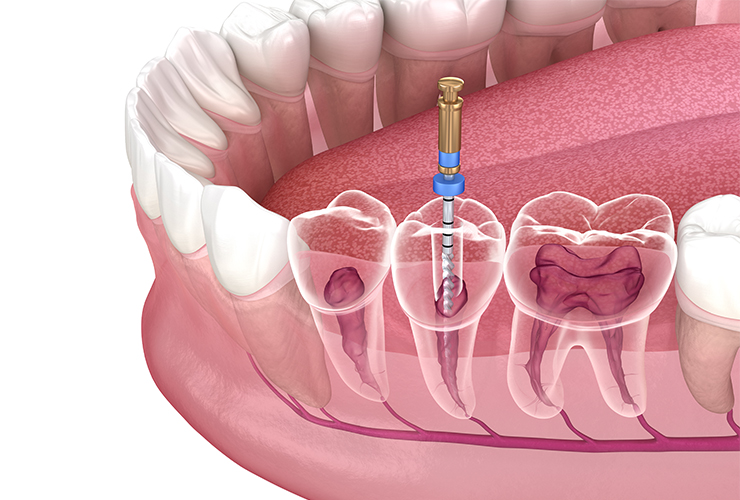Root Canal Treatment
What is root canal therapy?
Root canal therapy (endodontic treatment) fixes problems with a tooth’s soft core or dental pulp. Dental pulp lies within the tooth, extending from the crown of the tooth to the tip of the root. It contains nerves, connective tissue, and blood and lymph vessels which provide oxygen, nutrients, and feeling to the tooth. It also regulates the growth and development of the tooth during childhood.
Root canal therapy involves removing inflamed, diseased, or dead pulp from the pulp chamber and root canals of a tooth and replacing it with a filling in order to prevent the tooth from being extracted.
When is root canal therapy necessary?
Root canal treatment is recommended in cases of:
- Infection caused by deep decay or a large filling.
- Advanced gum disease.
- Trauma, such as a blow to a tooth or constant striking of a tooth by teeth on the opposite jaw.
- A fracture in the tooth, allowing bacteria to enter.
- Teeth grinding.
The symptoms of damaged, diseased, or inflamed dental pulp requiring root canal therapy include:
- Pain and pressure at the site of the tooth.
- Hot and cold sensitivity.
- Mobility of the tooth.
- Swelling and tenderness in the gums surrounding the tooth.
- Discolouration or darkening of the tooth.
- The presence of pus at the site of the tooth.
- Facial swelling.
A diagnosis for root canal therapy is made on the basis of symptoms reported by the patient, an examination of the tooth, and x-rays of the tooth.


